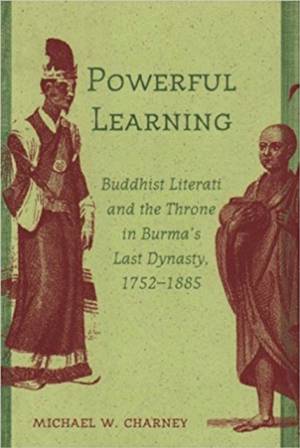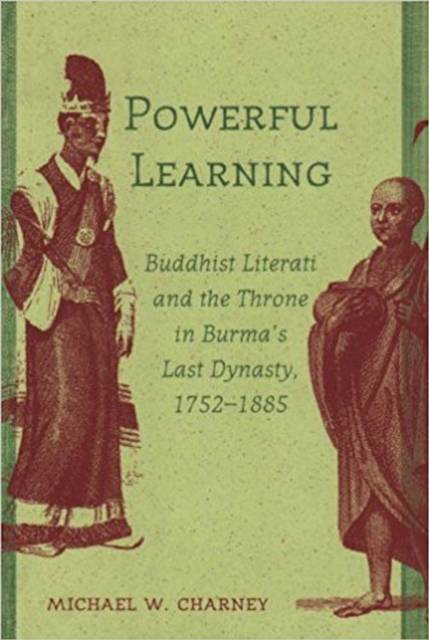
- Retrait gratuit dans votre magasin Club
- 7.000.000 titres dans notre catalogue
- Payer en toute sécurité
- Toujours un magasin près de chez vous
- Retrait gratuit dans votre magasin Club
- 7.000.0000 titres dans notre catalogue
- Payer en toute sécurité
- Toujours un magasin près de chez vous
Powerful Learning
Buddhist Literati and the Throne in Burma's Last Dynasty, 1752-1885
Michael Charney
Livre relié | Anglais
75,45 €
+ 150 points
Description
Powerful Learning is the first intellectual history of one of the great Buddhist empires of Southeast Asia, Konbaung Burma, before the British conquest. The book challenges the notion of the court and the monastic order as static institutions by examining how competition within and between them prompted major rethinking about the intellectual foundations of indigenous society and culture. The catalyst for this reformation of indigenous thought was the rise of a small clique of Buddhist monks and lay people from the frontier to commanding positions in the state and monastic order over the course of the late eighteenth and early nineteenth centuries. This clique had a major influence on the creation of state myths, the ways in which the throne ruled and presented itself, and, ultimately, the relationship between the throne and the state. The new state and monastic orthodoxy, however, was challenged by other Burmese literati, who, over the course of the nineteenth century, sought in Western science, technology, and political theory other ways in which to shape Burmese perspectives on state and society. In the process, the Burmese underwent a difficult transition from premodern to modern intellectual thought, one that helped usher in British rule.
Spécifications
Parties prenantes
- Auteur(s) :
- Editeur:
Contenu
- Nombre de pages :
- 312
- Langue:
- Anglais
Caractéristiques
- EAN:
- 9780891480938
- Date de parution :
- 01-01-06
- Format:
- Livre relié
- Format numérique:
- Genaaid
- Dimensions :
- 166 mm x 231 mm
- Poids :
- 607 g

Les avis
Nous publions uniquement les avis qui respectent les conditions requises. Consultez nos conditions pour les avis.






